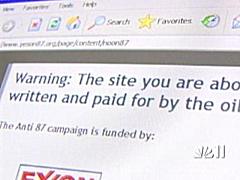87: PART 2
Continuing the assessment from September 27:
Opponents: “Prop. 87 creates a new state bureaucracy with 50 political appointees.”

- The proposition designates a nine person “authority” to administer the revenues. These are to be experts in renewable energy, allocating venture capital, research programs and so on. Each member is allowed a deputy. Members of the government, such as state Treasurer and state Attorney General, serve the authority. Advisory review committees for expert analysis are provided for, on a per diem basis only. The 50 political appointees may eventually materialize, but only in rigid service to the greater goals of the proposition. Creating and administering a $4 billion program requires the best and the brightest and that is all this proposition allows for. A provision rigidly delineates administrative cost expenditure to no more than 2.5% of total revenues.
Opponents: “ Prop. 87 lets the new bureaucracy keep spending even if they’re not producing results.”
- The proposition caps collections at $4 billion dollars over an estimated 10 year period. The voters or the legislature would be forced to renew the program after that, no matter how clean our air is in 2017.
Opponents: “Prop 87 robs schools of their fair share of revenues.”
- After assessing Land Property Tax revenues, State Income Tax revenues, oil production revenues and Fuel Excise Tax and Sales Tax revenues, the Secretary of State’s “Official Voter Information Guide” estimates no more than $25 million dollars in total reductions. Total. Schools wouldn’t get much of that 25 mil and the proposition mandates up to $4 million to go into public education, $10 million to go into community college vocational training and more than $100 million to go into California university research programs. So I guess it all depends on which schools you’re talking about.

- The proposition specifically does NOT affect money allotted to California schools by previous electoral measures.
- There would probably be some budget “hurt” in districts where present oil taxes support local school systems. Representatives of those districts can and should seek compensation from the new energy authority.
- Regarding economic impacts, the Secretary of State’s “Official Voter Information Guide” says this: Taken together, these economic factors could have mixed impacts on state and local tax revenues. So it is entirely possible the impact of the programs born of this proposition alone would have a beneficial effect on California schools’ revenues.
- And I suspect there is research somewhere showing that children learn better when they can breathe.
Update from 87 (posted September 27)
“87 is not a tax on consumers, it a tax on oil producers.”
California is the only oil-producing state that does not have such a tax:
(from California Budget Project analysis)
To Be Continued








0 Comments:
Post a Comment
<< Home